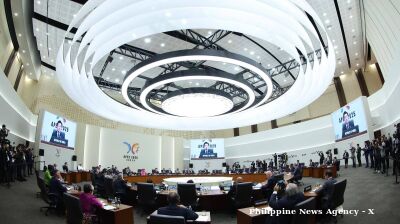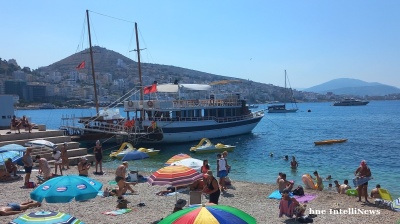Italian Prime Minister Giorgia Meloni is scrambling to defend her flagship migrant deal with Albania after a legal ruling dealt it a major blow.
The agreement, designed to ease pressure on Italy by sending migrants rescued at sea to Albania for processing, hit a roadblock when Italian judges ordered the return of 12 migrants back to Italy, arguing their countries of origin were not entirely “safe”.
The ruling was issued just days after a ship carrying the first group of migrants arrived at the Albania port of Shengjin on October 16.
In response, Meloni’s government plans to pass new legislation that would classify 22 countries as “safe”, allowing faster processing of asylum requests. The court’s decision, based on EU law, challenges this by stating that only whole countries — not regions — can be designated as safe.
Meloni criticised the ruling, accusing the judges of political interference and announcing plans to introduce laws that would bypass the decision. "The government, not the judiciary, decides which countries are safe," she said, calling for a cabinet meeting to finalise the new law.
The deal, worth €800mn, aims to process up to 3,000 migrants per month in Albanian camps. It is seen as a potential blueprint for Europe to handle migrant flows outside the EU’s borders. The plan has attracted attention from other European nations, including the UK, which has shown interest in similar initiatives.
However, it has faced criticism. Opposition leaders in Italy argue that the funds could be better spent on domestic needs like healthcare.
Outside Italy, critics, including the Council of Europe's human rights Commissioner, warn that this agreement could set a troubling precedent, suggesting that shifting responsibility for asylum seekers across borders may encourage other nations to do the same, potentially undermining international protection systems.
Aid organisations, among them Médecins Sans Frontières (MSF), have criticised the centres, arguing that they may act as a deterrent to individuals fleeing dangerous situations. MSF stated: “The goal is no longer just to discourage departures, but to actively prevent people from fleeing and those rescued at sea from gaining safe and rapid access to European territory.”
News

US–China soybean sales restart
According to Scott Bessent, US Treasury Secretary, the agreement marks a significant step towards restoring normalcy for American farmers.

Russia faces $50bn annual losses from oil sanctions as Lukoil exits international assets
Russia is expected to lose at least $50bn annually due to oil-related sanctions, as Moscow’s largest private oil producer Lukoil agrees to sell its international assets and Germany considers nationalising operations owned by state-run Rosneft.

Chicken and chips in Seoul - for Nvidia, Samsung and Hyundai
In a low-key fried chicken shop in southern Seoul, the leaders of Nvidia, Samsung Electronics and Hyundai Motor held an informal meeting on the evening of October 30.

Presidents Lee and Xi begin diplomatic chapter at APEC summit
President Lee, who is chairing the first session of the summit at the Hwabaek International Convention Centre, stood at the entrance to personally welcome participants. President Xi reached the venue at approximately 10:02.




